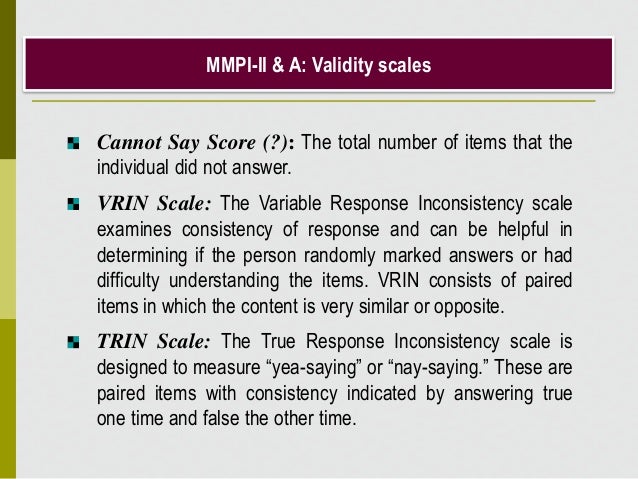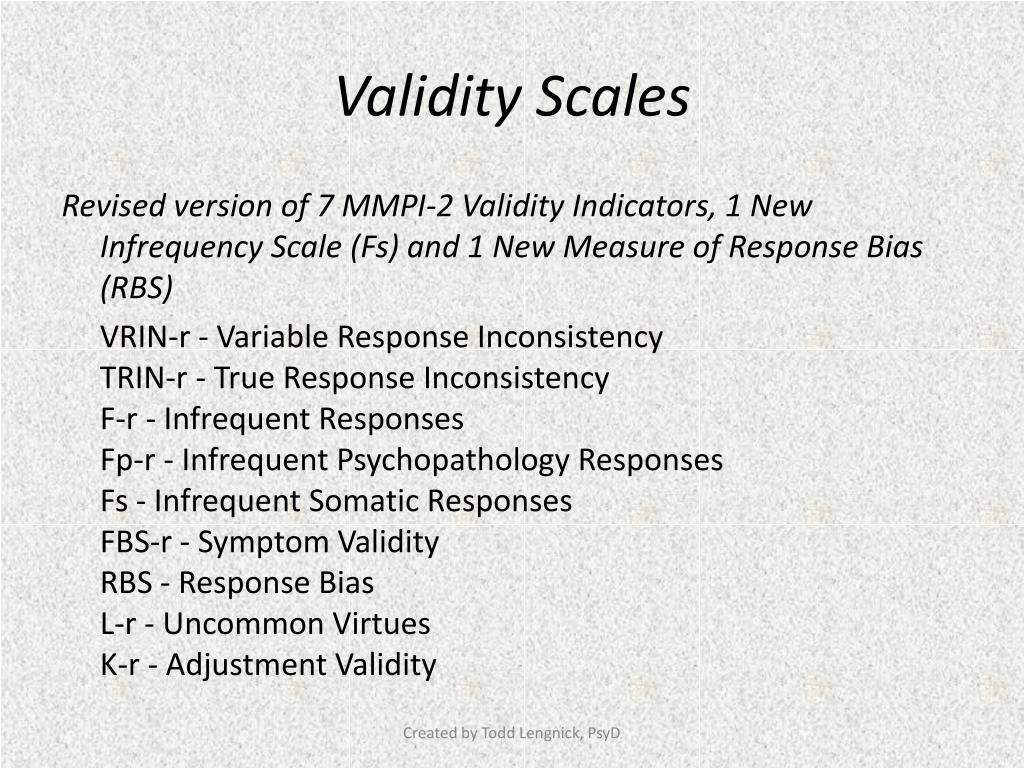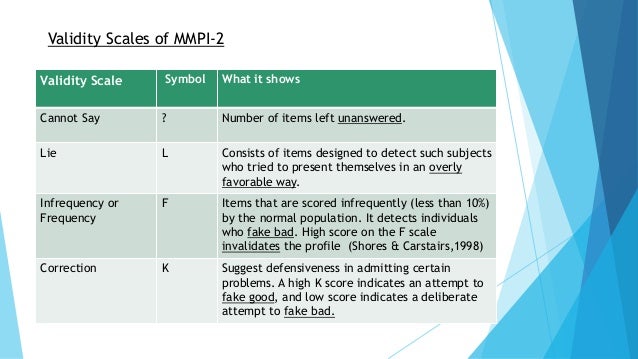

In 2008, the MMPI-2-RF (Restructured Form) was published to psychometrically and theoretically fine-tuned the measure.Restructuring the clinical scales was the initial step toward addressing the remaining psychometric and theoretical problems of the MMPI-2. Specifically, Demoralization – a non-specific distress component thought to impair the discriminant validity of many self-report measures of psychopathology – was identified and removed from the original clinical scales. In 2003, the Restructured Clinical scales were added to the published MMPI-2, representing a reconstruction of the original clinical scales designed to address known psychometric flaws in the original clinical scales that unnecessarily complicated their interpretability and validity, but could not be addressed at the same time as the restandardization process.In 1989, the MMPI became the MMPI-2 as a result of a restandardization project to develop a new set of normative data representing current population characteristics the restandardization increased the size of the normative database to include a wide range of clinical and non-clinical samples psychometric characteristics of the clinical scales were not addressed at that time.The most historically significant developmental changes include: Additionally, there have been changes in the number of items in the measure, and other adjustments which reflect its current use as a tool towards modern psychopathy and personality disorders. Many additions and changes to the measure have been made over time to improve interpretability of the original clinical scales. The MMPI was designed as an adult measure of psychopathology and personality structure in 1939. The MMPI is copyrighted by the University of Minnesota.

The original authors of the MMPI were American psychologist Starke R. 3.1 Addition of the Lees-Haley FBS (Symptom Validity).2.6 PSY-5 (Personality Psychopathology Five) scales.An alternative version of the test, the MMPI-2 Restructured Form (MMPI-2-RF), published in 2008, retains some aspects of the traditional MMPI assessment strategy, but adopts a different theoretical approach to personality test development. A version for adolescents, the MMPI-A, was published in 1992. It was replaced by an updated version, the MMPI-2, in 1989 (Butcher, Dahlstrom, Graham, Tellegen, and Kaemmer). McKinley, faculty of the University of Minnesota, and first published by the University of Minnesota Press in 1943. The original MMPI was developed by Starke R. Psychologists and other mental health professionals use various versions of the MMPI to help develop treatment plans, assist with differential diagnosis, help answer legal questions ( forensic psychology), screen job candidates during the personnel selection process, or as part of a therapeutic assessment procedure. The Minnesota Multiphasic Personality Inventory ( MMPI) is a standardized psychometric test of adult personality and psychopathology. Copyright © 1999 John Wiley & Sons, Ltd.Standardized psychometric measure of psychopathology and personality Minnesota Multiphasic Personality Inventory Potential dangers associated with such false causal attributions are reviewed. False causal attributions contributing to the potential mischaracterization or loss of important data related to personality functioning within this population are identified and discussed. That is, MMPI‐2 profiles that contain elevations on scales L or K that either invalidate or notably suppress clinical scales are not to be expected in the child custody population. Despite empirical findings that identify patterns of elevations on the MMPI‐2 validity scales with parents involved in child custody disputes, these patterns have been demonstrated to reach statistical but not clinical significance. While traditional clinical lore has maintained an expectation of clinically significant defensiveness on the MMPI‐2 with this population, the research data does not support this view. Due to the interface of mental health practitioners with non‐mental‐health professionals in the context of child custody cases, careful attention must be paid to the potential misunderstanding or misuse of data from psychological testing.

The MMPI‐2 is commonly used in the psychological assessment of parents within child custody evaluations. MMPI‐2 validity scales in child custody evaluations: clinical versus statistical significance MMPI‐2 validity scales in child custody evaluations: clinical versus statistical significance


 0 kommentar(er)
0 kommentar(er)
